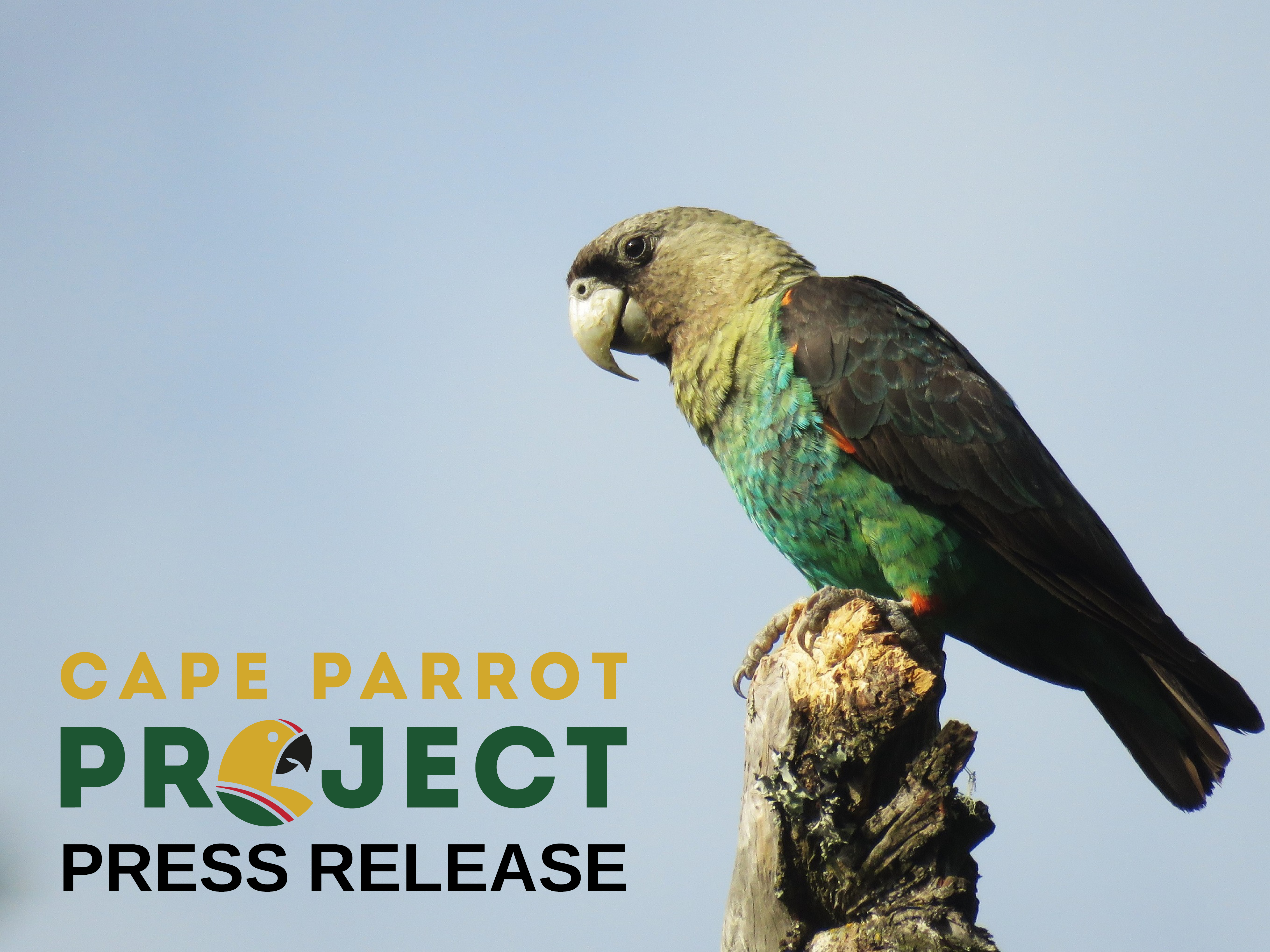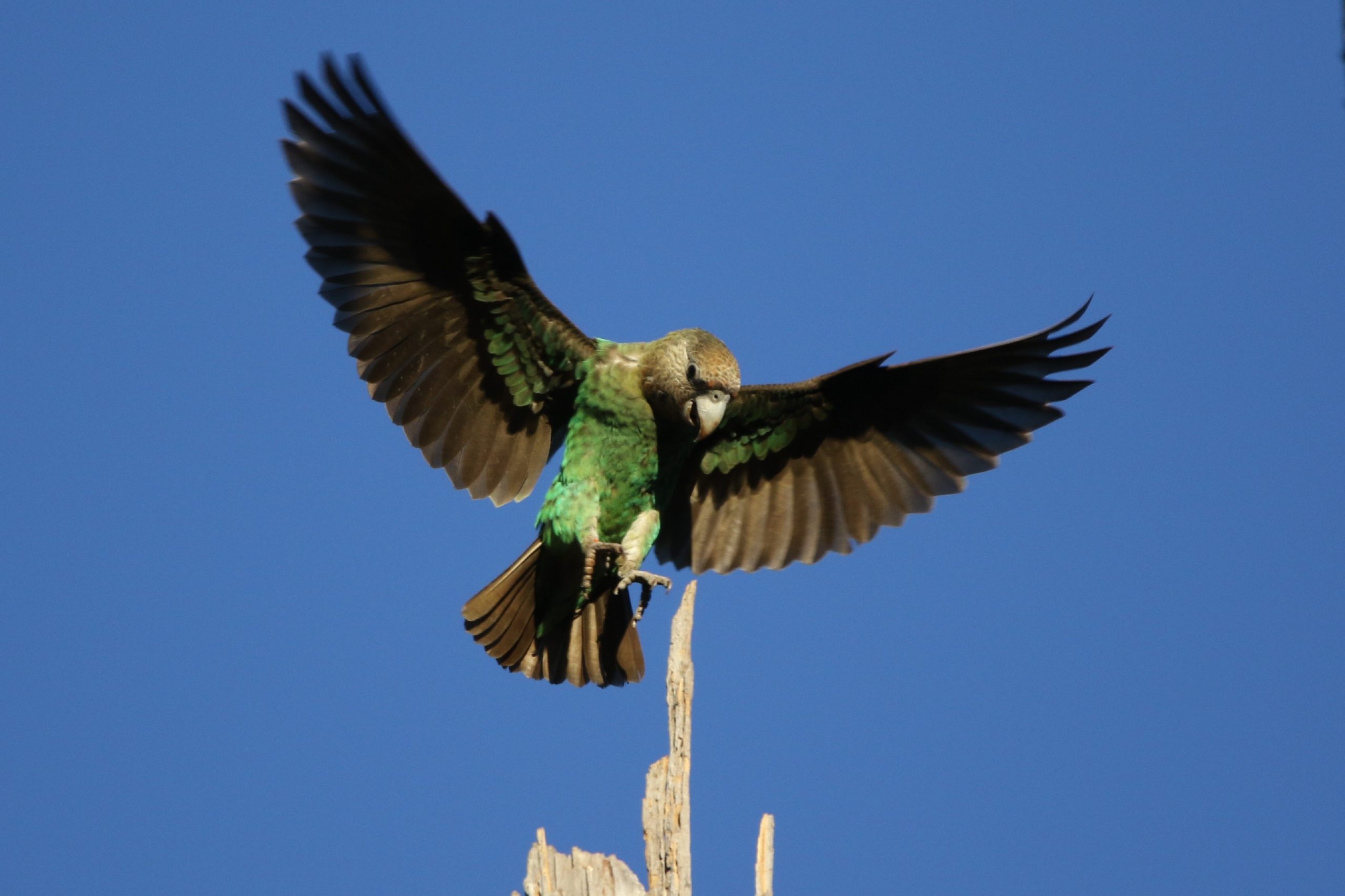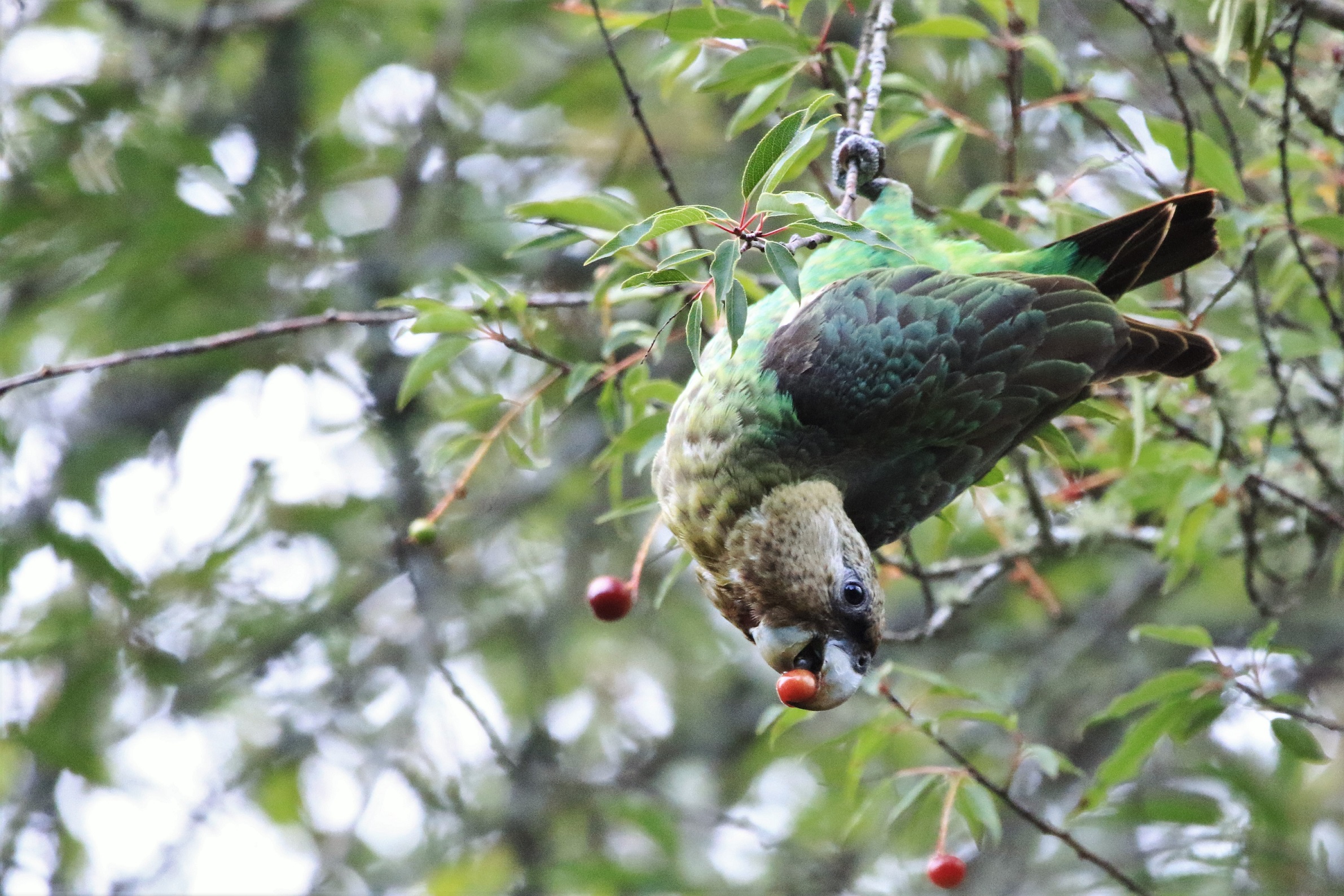To ensure this species does not go extinct, the Cape Parrot Project is working to engage communities, organisations and the public to the threats the bird is facing and to educate on how we can maintain a healthy habitat for the parrot. The goal is a sustainable ecosystem for not just the parrots, but all the forest species and for surrounding communities.
The Cape Parrot Project aims to conserve the Cape Parrot by using research and science to drive conservation action where a main part of it involves partnering with local communities for habitat restoration.
Given the importance of the indigenous forest for these birds and other forest-dependent species, the Cape Parrot Project restores and protects Afromontane indigenous forests. Alien vegetation is managed to assist natural forest regeneration, and planting indigenous species is undertaken where appropriate.
Seeds are collected from a variety of local indigenous trees in the nearby forest and germinated in compost. Thousands of indigenous tree saplings are produced through the community-run nurseries built in communities adjacent to the forest habitat and the nursery at the project’s base in Hogsback in the Eastern Cape.
“Community members are encouraged to grow seedlings which the project then buys back. These seedlings are planted back into appropriate degraded forest habitat. Thus, the Cape Parrot Project strengthens local social-ecological resilience through creating livelihood opportunities in local communities that are dependent on a healthy ecosystem and their surrounding indigenous forest,” said Dr Francis Brooke, Research Manager for the Cape Parrot Project in Hogsback,
The project also engages with schools in the nearby local communities for education drives so that children can become agents of positive environmental change and to increase their appreciation for the indigenous forests and all the species that call these forests home.
By restoring degraded forests and planting new trees, we can help to mitigate the impacts of climate change. Forest restoration has the potential to sequester significant amounts of carbon dioxide from the atmosphere, while also providing numerous co-benefits such as improved air and water quality, increased biodiversity, and support for local communities.
Dr Kirsten Wimberger, Director of the Cape Parrot Project, said: “The restoration of forests campaign – Myforest – will be launched on World Parrot Day, 31 May, where the public can get involved by helping to protect the Cape Parrot and demonstrate their commitment to conservation in South Africa,”. Simply visit us on www.wildbirdtrust.com, subscribe to our database, pledge from as little as R50 a month and don’t forget to share to your network.
As a partner of the Cape Parrot Project, participating companies can build on their sustainability portfolio while also raising awareness about the project. The Cape Parrot Project has a growing and dedicated following on social media, including conservationists, bird enthusiasts, and individuals who care about environmental issues. By partnering with the Cape Parrot Project, companies can pride themselves on adopting a social responsibility program that is making a difference and do their bit for the planet.





